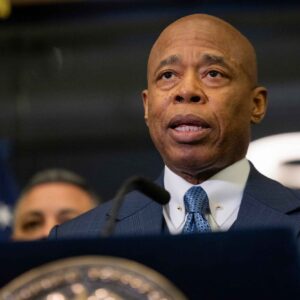A Delaware judge voided a historic $56 billion compensation package to Tesla CEO Elon Musk on the grounds that Musk provided insufficient proof that the “unfathomable sum” was fair.
While the ruling can be appealed, shares of the company declined by roughly three percent in extended trade and many observers hope the development will lead to a shakeup of Tesla’s governance. The Tesla board is under pressure to reign in Musk’s volatile activity, which they claim has incurred the wrath of federal regulators and garners bad press through his outspoken social media feed. Additionally, there is newfound hesitation among investors regarding electric vehicle (EV) stock due to worries about low demand, which threatens Tesla’s bottom line.
Learn the benefits of becoming a Valuetainment Member and subscribe today!
The package was set to be the most expensive in American corporate history. In 2018, Musk had agreed to become the CEO for one decade, and Tesla struck a deal to pay him 20.3 million stock options estimated to be worth around $55 billion at the time.
The judge argued that the board’s directors were too beholden to Musk to be impartial approvers.
“Swept up by the rhetoric of “all upside,” or perhaps starry eyed by Musk’s superstar appeal, the board never asked the $55.8 billion question: Was the plan even necessary for Tesla to retain Musk and achieve its goals?” wrote Kathaleen McCormick of Delaware’s Court of Chancery.
The compensation was first challenged by Tesla shareholder Richard Tornetta, whom judge McCormick ordered to work with Musk’s legal team on finalizing a plan. Tornetta had initially filed the suit in 2018, arguing that it was “excessive” and went against the board’s commitment to fiduciary responsibility.
“Good day for the good guys,” read an email from Greg Varallo, an attorney for Tornetta.
In 2022, Elon Musk had defended the payment package in court, saying he had no role in establishing the price tag.
In response, Musk fired off a series of X posts criticizing Delaware and its legal climate regarding corporations.
Never incorporate your company in the state of Delaware
— Elon Musk (@elonmusk) January 30, 2024
I recommend incorporating in Nevada or Texas if you prefer shareholders to decide matters
— Elon Musk (@elonmusk) January 31, 2024
Should Tesla change its state of incorporation to Texas, home of its physical headquarters?
— Elon Musk (@elonmusk) January 31, 2024
Finally, he shared a Wall Street Journal op-ed from November about Delaware’s corporate-allergic culture, contracted by its “flirtation with ESG.”
— Elon Musk (@elonmusk) January 31, 2024
The piece gives an account of Delaware’s shift from a corporate-friendly tax haven to a progressive stronghold that minimizes shareholder value in favor of “stakeholders” and “broader constituents.” Delaware’s adherence to corporate law was formally changed in 2021 by former state Supreme Court Justice Tamika Montgomery-Reeves, who was subsequently nominated to the federal appellate bench by President Joe Biden.
 Shane Devine is a writer covering politics, economics, and culture for Valuetainment. Follow Shane on X (Twitter).
Shane Devine is a writer covering politics, economics, and culture for Valuetainment. Follow Shane on X (Twitter).


















Add comment